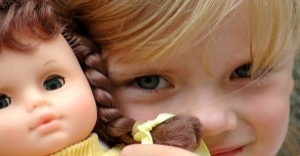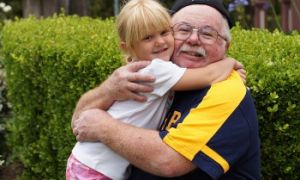

It is not uncommon for educators to confide that transitions tend to be the most difficult time in a typical ECEC day. At such times children often display or increase the intensity of challenging behaviours like non-compliance, aggression, biting, and so on. The following provides strategies for dealing with toddler and preschooler's difficult behaviour during transitions.
In almost 20 years, the Center for Disease Control and Prevention (CDC) and the American Academy of Pediatrics (AAP) have updated guidelines for developmental milestones for children. It has been said that earlier the milestones were depicted with 50 per cent accuracy which means there are 50 per cent chances a child may not follow the developmental milestone such as crawling, walking, making sounds, recognising a face, start smiling at a familiar face, etc. Now CDC has updated the milestone with 75 per cent accuracy which helps to track a child's growth against the developmental checklists.
To be familiar with nature, to spend some time amid nature, talking, thinking about trees, grasses, pebbles, climates, small insects, ground warm enhance the resilience and self-esteem of a child.
One of the most important concepts we can introduce to children is road safety. Road safety awareness can help to reduce the risk of serious injury among young children by assisting them to develop skills, knowledge and behaviour about the safe use of roads. The following article provides information on Road Safety Skills For Children, Teaching Children About Road Safety Rules, Fun Road Safety Experiences For Children, Road Safety Songs and Rhymes and more.
John Dewey is often seen as the proponent of learning by doing – rather than learning by passively receiving. He believed that each child was active, inquisitive and wanted to explore. He believed that children need to interact with other people, and work both alone and cooperatively with their peers and adults. The following provides information about John Dewey, Definition Of The Curriculum, Main Features Of Dewy's Theory of Education, Progressive Education and Dewey's Theories In Practice.
As Educators when communicating with Parents (through verbal or non-verbal communication), there will be times where we need to discuss issues or concerns that may arise. During this time, we may use negatives to describe the child's behavioural or personality traits (weaknesses) that they may be displaying. However, these weaknesses are hidden strengths, forming the chid's unique personality and abilities.
There are 6 different types of play that children participate in over the course of their development.
Gardner proposed a theory of multiple intelligences that suggests there is more than one intelligence – He considers children and adults to be individuals who all have skills and areas that we enjoy and excel at and that these fit into our major intelligence.
Piaget discovered that all children’s cognitive development progressed through four stages, beginning in infancy and are completed by adolescence. Thinking becomes more and more complex as the child ages. Each stage of thinking causes the child to see the world in a different way.
ABC Kids has a range of free content for Early Childhood Educators to use with children which aligns with early childhood pedagogy and the national approved learning frameworks.
 Open ended questions cannot be responded to with one word answers such as yes or no. These types of questions enables a child to provide… Read More
Open ended questions cannot be responded to with one word answers such as yes or no. These types of questions enables a child to provide… Read More
 During your child’s preschool years, an important milestone begins to emerge. This is the development of pre-writing skills. Pre-writing skills are used to encourage, develop… Read More
During your child’s preschool years, an important milestone begins to emerge. This is the development of pre-writing skills. Pre-writing skills are used to encourage, develop… Read More
 Open ended materials enables children to play freely. They are objects that have no rules to follow, use or function. Raw materials that can be… Read More
Open ended materials enables children to play freely. They are objects that have no rules to follow, use or function. Raw materials that can be… Read More
 Language plays an important role in a child’s development. It enables a child to communicate effectively with their family, learn at school, socialize with friends,… Read More
Language plays an important role in a child’s development. It enables a child to communicate effectively with their family, learn at school, socialize with friends,… Read More
 An Acknowledgment of the Country is a way of showing respect for the Traditional Owners and can be given by both non-Indigenous people and Aboriginal… Read More
An Acknowledgment of the Country is a way of showing respect for the Traditional Owners and can be given by both non-Indigenous people and Aboriginal… Read More
 Like adults, children have to deal with their own stress in life. Moving house, starting a new school, preparing for a new sibling - these are… Read More
Like adults, children have to deal with their own stress in life. Moving house, starting a new school, preparing for a new sibling - these are… Read More
 Playdough is such a versatile material. It provides numerous benefits to children as they manipulate it, it is safe and soothing and provides children with… Read More
Playdough is such a versatile material. It provides numerous benefits to children as they manipulate it, it is safe and soothing and provides children with… Read More
 Teaching children about sustainability enables them to appreciate and respect the natural environment. Early childhood services can provide meaningful hand on learning experiences in order… Read More
Teaching children about sustainability enables them to appreciate and respect the natural environment. Early childhood services can provide meaningful hand on learning experiences in order… Read More
 When children apply paint to paper, glue things together, or pound a lump of clay, they experiment with colour, shape design and texture.
Read More
When children apply paint to paper, glue things together, or pound a lump of clay, they experiment with colour, shape design and texture.
Read More
 Pretend play is very important for children's development and learning. In the house corner, children can take on and try out roles from familiar family… Read More
Pretend play is very important for children's development and learning. In the house corner, children can take on and try out roles from familiar family… Read More

International Kite Day is held on January 14th, 2024. The following provides a list of...
See more...
The Health and safety of children are among the prime concerns of early childhood services...
See more...
Kindness is an important tool that we should instil in all, especially children. It should...
See more...© 2009-2024 Aussie Childcare Network Pty Ltd. All Rights Reserved.

